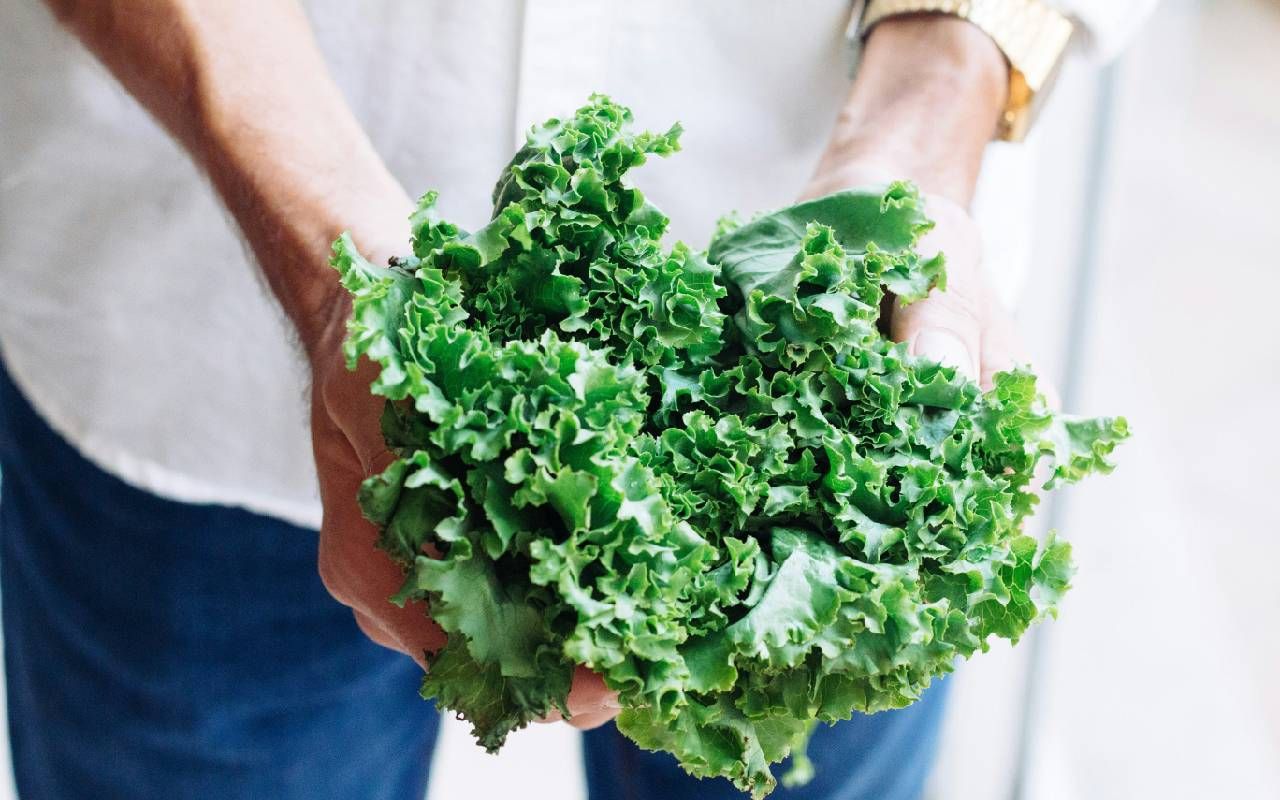The Health Benefits of Flavonoids
A look into what flavonoids are, why they’re essential for longevity and three simple tips for increasing your intake
Between 2019 and 2021, life expectancy in the United States dropped by 2.7 years, the most significant two-year difference since the 1920s. In response, many people are looking more closely at how their lifestyle choices — including diet — can fight this trend, maximizing health and extending longevity.
What are flavonoids and what's their role in promoting longevity? By adding them to your diet, you may lower your risk of developing chronic illnesses.

What Are Flavonoids?
Flavonoids are naturally occurring nutrients in plants. When eaten, these phytonutrients prevent and clean up damage to the cells in your body. They are found in many different fruits, vegetables, grains, legumes, nuts and even in plant-based beverages like tea, coffee and wine. In total, scientists have identified over 5,000 naturally occurring flavonoids.
What makes these natural compounds so powerful for supercharging your health? For starters, science shows that flavonoids are:
- Antioxidant
- Anti-inflammatory
- Antiviral
- Antimicrobial
- Antiallergic
- Immuno-supportive
"The purpose of antioxidants is to neutralize free radicals and damage in the body."
"The purpose of antioxidants," says registered dietician Kerri Hawkins, "is to neutralize free radicals and damage in the body. A simple way to think about it is that they prevent or repair the damage and stress that happens naturally." Chronic diseases can develop when repairs don't happen, affecting your health and wellness.
Research shows that foods high in flavonoids help protect against specific illnesses such as cancer, neurodegenerative diseases, cardiovascular disease and diabetes. By lowering the risk of developing these chronic conditions, flavonoids can help extend a person's life span and promote overall health.
What Foods Have Flavonoids?
These powerful phytonutrients are present in a wide array of fruits and vegetables. "When you think about flavonoids," Hawkins says, "think color. They're responsible for the colors of fruits, vegetables and flowers."
When you shop in the produce section, look for the most vibrant fruits and vegetables. They are loaded with flavonoids.
Examples of flavonoid-rich foods, also known as "superfoods," include:
- Leafy greens (e.g., kale, spinach, romaine lettuce)
- Apples
- Berries (e.g., strawberries, blueberries, elderberries)
- Cherries
- Citrus fruits (e.g., grapefruits, lemons, limes)
- Pecans
- Artichokes
- Broccoli
- Onions
- Red cabbage
- Chickpeas
- Green tea
While red wine can also be a good source of phytonutrients, registered dietician Danica Cowan at the UCSF Osher Center for Integrative Health cautions against drinking too much. "Yes, certain types of wine are probably good sources of flavonoids, but the downsides of alcohol are pretty conclusive," she says. "Less is better."
On Flavonoids and Longevity
In addition to reducing the risk of developing chronic illnesses, a study in 2023 showed that eating a flavonoid-rich diet may delay aging. Researchers looked at the diets of 3,193 people and measured their flavonoid intake. Next, they compared each person's chronological age with their calculated biological age based on biomarkers in their blood.
By lowering the risk of developing chronic conditions, flavonoids can help extend a person's life span and promote overall health.
The results? The group who ate the most flavonoids had a lower biological age, showing slower aging than those with poor flavonoid intake. Data also revealed decreased whole-body aging and slower cardiac and liver aging in the high-flavonoid group. In other words, their hearts, livers and bodies (overall) were biologically younger than their chronologic age.
Although more research is needed to confirm and explore these findings, this study was one of the first to investigate the possible link between flavonoid intake and aging. The impacts on extending longevity and quality of life are two areas that are ready for future research.
Where to Begin
For most people, the steps to maximizing the powerful benefits of flavonoids are simple and easy to start. "People get overwhelmed when they start hearing those tough-sounding words like phytonutrients," Cowan explains. "But you know what? Those don't really matter unless you're a scientist. If you're trying to eat healthier, the goal is to eat more fruits and vegetables."
Here are three easy ways to enrich your diet with flavonoid-rich foods.
"Go through every meal and think, 'Where can I add more fruits and vegetables to this?'"
Start where you are
As a first step, Cowan encourages her clients to keep a food journal to see what their diet looks like right now. It doesn't have to be complicated or include portion sizes or calories. Just write down everything you eat for 3-7 days.
Next, look at the journal and see how you're measuring up. Cowan recommends that fruits and vegetables make up at least half of your plate. "Go through every meal," she suggests, "and think, 'Where can I add more fruits and vegetables to this?'" Instead of radically changing your diet, try adding plant-based foods to your current diet.
For example, frozen vegetables are great to have on hand because they're easy to add to meals, affordable, non-perishable and loaded with flavonoids and antioxidants. "You can add frozen spinach to anything," Hawkins points out. "Whether you're making a smoothie, cooking eggs or making a soup, just take a handful of frozen spinach and throw it in."
Although following specific plans — like the Mediterranean, Blue Zone or anti-inflammatory diets —can be helpful, making small, consistent changes to your current diet can be a more accessible starting point. "It's okay to start where you are," Cowan notes. "There's no such thing as a perfect diet. It's about progress, not perfection."
Reimagine food preparation
Don't like certain fruits or vegetables? Experiment with preparing them differently. "For ages, people didn't like Brussels sprouts because everyone was boiling them," Cowan explains. "As soon as we figured out how to roast them, everyone loves them. A good cook can make anything taste good."
"There's no such thing as a perfect diet. It's about progress, not perfection."
Roasting foods is particularly effective for many vegetables because it reduces bitterness, making the flavor neutral, if not delicious. "Maybe it's not going to be your favorite food," says Cowan, "and that's okay. If you don't dislike it, you can mix it into something else."
At the same time, try spicing up your meals. Herbs make foods more attractive to your taste buds and are packed with phytonutrients. For example, dried parsley contains more flavonols (per gram) than red onions, goji berries and cranberries. Other herbs that are flavonoid-rich include:
- Dried oregano
- Saffron
- Dill
- Fennel
Cowan encourages her clients to experiment with spices and get creative. "When they come from nature, a lot of the things that make food taste good are also good for us."
Need more inspiration? Check out these recipes for idea starters. Strawberry Basil Goat Cheese Burgers and Mini Mediterranean Frittatas make delicious and nutritious meals.
Embrace change
What if you've lived your life not eating or liking vegetables? "You can always try something new," Cowan says. "It's not too late to rethink your relationship with food — and vegetables in particular." Whatever the reason for changing your diet, there is always something you can do to get closer to your goal.
For some, motivation comes from illness or receiving a medical diagnosis. "When people start to approach 50+, there's a recognition that the body is not invincible. But that's not hopeless," Hawkins says. "If you have a diagnosis of diabetes, high cholesterol or high blood pressure, there are a lot of things you can do to reverse that. And I've seen a lot of my clients do the hard work and be able to have some great success."
Key Takeaways
Increasing your dietary intake of flavonoids has many benefits, including boosting heart and brain health. They promote longevity and wellness by lowering the risk of developing chronic disease. When setting a goal to eat more flavonoid-rich foods, it's essential to start from where you are, get creative with food preparation and embrace changes — even small ones.
Remember that when making dietary changes, you must consult with your medical team to ensure it is the right plan for you and that it addresses your health concerns.


